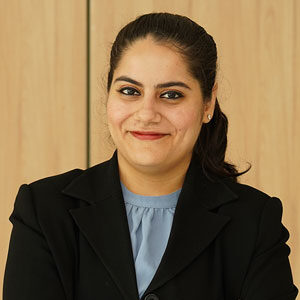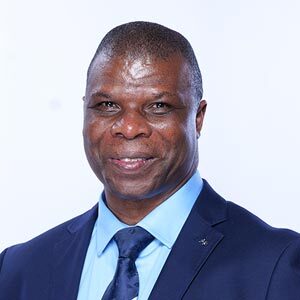In-depth Knowledge of Your Field
Increased Opportunities
The 24-month program is entirely customized through examples, strategies, and assignments for any elementary teacher to gain and sharpen instructional skills.
The Master of Arts in Elementary Education program is a 36-credit K-8 program that offers a rich combination of online learning, classroom practice, learning community sharing, research and analysis, and assessment to produce teachers that are capable of making a difference in student learning and achievement. Online examples in each lesson are provided to help primary, intermediate and junior high school teachers in any subject or lesson. The program is entirely customized through the examples, strategies, and assignments for any elementary teacher to gain and sharpen instructional skills.
The courses that make up the program curriculum are designed to prepare and strengthen the classroom teacher by providing the most current research-based and proven educational strategies and knowledge. The curriculum encompasses learning theory, educational foundations, brain theory, best practices, curriculum development, standards, and assessment. The courses in child and adolescent development, special needs and classroom management provide a framework of how teachers can provide appropriate strategies and environments for all students. A mentored practicum and portfolio project are included to enable the student to synthesize the knowledge and skills of the program into his/her personal understanding of an effective classroom for elementary students.
The goal of the program is to develop scholar-practitioners who will learn and practice advanced skills in designing, implementing and analyzing instruction using research based strategies so they can provide an active, positive and effective classroom environment for elementary students.
Discover additional information about the program
|
Code
|
Course
|
|---|---|
|
EDC500
|
Power Strategies for Effective Teaching
|
|
EDC510
|
Power Strategies for Classroom Assessment
|
|
EDC520
|
Power Strategies for Improving Comprehension
|
|
EDC540
|
Classroom Management
|
|
EDC550
|
Child and Adolescent Development
|
|
EDC560
|
Curriculum, Instruction, and Assessment
|
|
EDC570
|
Special Needs Students
|
|
EDC577
|
English Language Learners
|
|
EDC585
|
Principles of Elementary Education
|
|
EDC610-1
|
Research Methods
|
|
EDC610-2
|
Action Research
|
|
EDC620
|
Mentored Practicum
|

This course features methods of teaching and learning through graphic organizers, word walls, and partnering to increase comprehension in all subject areas. Teachers learn to use visual representations to help students organize ideas and thoughts; understand relationships among those ideas and remember the information. Strategies are provided for teachers to use word walls in classrooms so that students build vocabulary and their understanding of the English language. Graphic organizers, word walls, and partnering are effective for all students including special education students and English language learners. Many classroom examples are provided for all grade levels and for special populations to assist the teacher in learning and implementing these strategies in the classroom. Program Structure
This course features methods of teaching and learning through rubrics and editing. Teachers learn to use rubrics in all subject areas to set learning expectations for students with a wide range of abilities. Active learning is promoted so that students become involved in their learning. Teachers practice strategies for editing that provide specific feedback based on the use of rubrics for analysis. They also learn strategies that develop the students’ editing skills. The concept of editing is expanded to include visual products, performances, processes, and written products. These assessment skills are essential to all students, including special education and English language learners. The rubrics set expectations for quality that provide differentiated instruction for diverse populations. Many classroom examples are provided for all grade levels and special populations to assist the teacher in learning and implementing these strategies in the classroom.
This course features multiple ways to use the strategies of reflection, note-taking, and summarizing to increase learning. Teachers learn to design frequent opportunities for students to reflect on the important concepts in the subjects they teach. Based on brain research, reflection means “thinking about learning”. It is effective for use in all grades, and subject areas, and for all students to enhance knowledge, clarify concepts, and relate new ideas to prior knowledge. Teachers learn to use and teach note-taking, summaries and summary frames to assist the students in organizing reflections, summarizing notes, and summarizing various types of written material. Many classroom examples are provided for all grade levels and for special populations to assist the teacher in learning and implementing these strategies in the classroom.
This course assists teachers in organizing the classroom environment; working with students to design rules and routines and using strategies to create and maintain a learning environment/community. Specific strategies are suggested to limit or decrease behaviors that interfere with learning. Teachers learn recording techniques for observing and analyzing student behavior in the classroom. They examine strategies to promote effective parental and community resources that will maximize learning in diverse classrooms. Many classroom examples are provided for all grade levels and for special populations to assist the teacher in learning and implementing these strategies in the classroom.
This course focuses on the effective implementation of developmentally appropriate strategies in the classroom. Participants explore various domains and stages of development within the age range from birth to 18. They learn the role of culture in the learning process and how collaboration among the many stakeholders in the school and community affects development. The stages relate to cognitive, emotional, physical, and social development and how teachers can facilitate student growth in these areas. The strategies focus on all aspects of the classroom from the decision-making to the way instruction is delivered. Many examples are provided for all grade levels and for special populations to assist the teacher in understanding these stages and using effective strategies in the classroom.
This course builds teacher understanding of academic curriculum design, delivery and assessments. The development of the curriculum will address research-based practices, technology integration, and developing content assessments that align with the curriculum. Types of assessments are explored and strategies for developing content assessments that align with the curriculum are presented. The course will also explore current trends, issues, and policies and their impact on curriculum instruction and assessments. Teachers learn how to relate the curriculum and assessments to state, provincial, or country standards and adjust for diverse populations such as special education or English language learners. Many examples are provided for all grade levels and for special populations to assist the teacher in learning and implementing effective curriculum and assessment strategies in the classroom.
This course focuses on the special instructional needs related to special education students, gifted students, and English language learners. Teachers learn how to use learning styles, differentiated learning, and effective strategies that engage learners and provide for individual needs. Specific strategies are suggested for the various populations. Strategies for adapting a “regular” classroom to provide an appropriate learning environment for all children, including those outside the normal range, are provided and discussed. Many examples are provided for all grade levels and for special populations to assist the teacher in learning and implementing effective strategies in the classroom.
This course presents language development theories and programs for English language learners. Teachers learn effective programs and strategies that focus on oral and written language development. The types of programs provided by states and districts are compared regarding their efficacy for English language learners. Strategies for teaching the skills of reading and writing using appropriate scaffolding are presented and practiced. Specific classroom strategies are designed, implemented, and analyzed. Many examples are provided for all grade levels and for special populations to assist the teacher in learning and implementing effective strategies in the classroom.
This course provides the foundation and growth of elementary education in the United States. Elementary is defined as grades from kindergarten through 8th grade. Teachers learn how various curricular programs are established, organized, and implemented for the elementary school. Learning theory and research related to the establishment of effective school programs are presented. Classroom and school examples are analyzed for a variety of types of school programs. Teachers learn specific strategies for implementation related to developmentally appropriate elementary education. The course is organized to provide information and opportunities for discussion on the following topics:
This course provides the foundation and growth of elementary education in the United States. Elementary is defined as grades from kindergarten through 8th grade. Teachers learn how various curricular programs are established, organized, and implemented for the elementary school. Learning theory and research related to the establishment of effective school programs are presented. Classroom and school examples are analyzed for a variety of types of school programs. Teachers learn specific strategies for implementation related to developmentally appropriate elementary education. The course is organized to provide information and opportunities for discussion on the following topics:
This capstone course focuses on the methods used in quantitative and qualitative research with an emphasis on action research in the classroom. Each student will conduct an action research project that applies some aspect of the previous courses. Electronic portfolios are used to store and organize all the materials for the project such as logs, reflections, and summaries, assessments, examples of curriculum and assessment development, case studies, charts, graphs, and video clips
This capstone course is the final course of the master’s degree program and demonstrates proficiency in learning and applying skills learned and practiced throughout the program. A formal presentation of the action research may be made to an audience such as the principal and staff or attendees at a conference, workshop, or seminar.
The mentored practicum is an individualized application project determined by the student, the school leader where he/she is employed, the assigned mentee at the school, and the online instructor. The course provides students with research-based and evidence-based strategies to establish and maintain mentoring relationships. Students examine various mentoring models and learn about essential characteristics of effective mentoring. Students apply critical thinking skills to design, implement, and assess work-based mentoring experiences while reflecting on their practices and how they influence mentoring outcomes.

MBA in Global Banking and Finance
In-depth Knowledge of Your Field
Increased Opportunities
A Higher Earning Potential
Reputation and Credibility
Better Networking Skills
Keeps You Competitive
Exeed College is the marketing partner of Acacia University.





If you’d like to gain the complete skill set to succeed in today’s business world, this is the area for you.
Acacia University – Exeed College follows an assignment-based assessment approach, and the student needs to submit an assignment after each module.
Suite 704, City Gate Tower, Al Ittihad Road, Al Taawun, Sharjah, UAE
Email : info@exeedcollege.com
Phone : +971 6 745 2556, 6 531 2511
